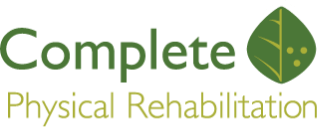If you have arthritis pains, then you know all about the difficulties with moving and functioning in daily life that it can present. What you might not know, however, is that physical therapy can help you find relief from your arthritis pain. There is no cure for arthritis, but by using the exercises and techniques that your physical therapist can teach you, the onset of arthritis can be slowed and you will experience less pain overall. Those are some great reasons to call our office and schedule a physical therapy appointment today.
How Physical Therapy Can Help with Arthritis Pains
Arthritis attacks the joints of the body, so the goal of physical therapy will be to restore the use of those joints and improve your ability to move around and engage in daily activities. This will be achieved through a combination of exercise to strengthen the support structures around the joints and teaching you how to move and engage in activities without worsening your symptoms. The exact course of treatment that your physical therapist will prescribe will depend on how advanced your arthritis is and which parts of the body are impacted.
The physical exercises your therapist will teach you will be directed toward improving your mobility, range of motion, flexibility, and coordination. Additional treatments for your arthritis pains may include:
- Posture: Your therapist will teach you various body mechanic techniques that will improve joint function and reduce pain. You will also be taught ways to use your strongest muscles and joints to relieve pressure on arthritic joints.
- Education: Sometimes arthritis in the hip or knee will require the use of assistive mobility devices, such as a cane or walker. Your physical therapist will teach you the proper way to use these devices.
- Treatments: Modern physical therapy has a broad range of treatment options available to assist with arthritis pain. Hot and cold therapy can relieve the pain and stiffness in joints; braces or splints can help to stabilize and support arthritic joints; shoe inserts can relieve arthritis pain in the lower extremities; and so on.
- Environment Modifications: Your physical therapist can make specific recommendations for additional therapeutic aids based on your type of arthritis. These can include ergonomic furniture or cushioned mats in areas of your home or at work where you tend to stand on your feet for long periods of time.
Here’s What a Physical Therapy Session Looks Like
Physical therapy visits are often short in duration. Your therapist will be focused on spotting problems with your physical function that are related to arthritis, and teaching you methods you can employ at home to relieve pain. The way to actually achieve pain relief from your arthritis is to keep up with the teachings for the long term. The improvement will be gradual, so it’s important that you follow your physical therapist’s instructions.
In order to help your physical therapist to provide you with the best advice possible, think carefully about different physical goals that you might have. For example, you might want to be able to do your daily job without straining your hips or knees, to reach things high up on a kitchen shelf, or to simply get in and out of your car without pain. Expressing these goals to your therapist will aid in ensuring that your treatments are as specific to your goals as possible.
Your physical therapy sessions probably won’t need to be done on a weekly basis. Once every few weeks to monitor your condition and progress should be sufficient. If you are ready for relief from arthritis pain, contact our office to schedule your first appointment with a physical therapist.

